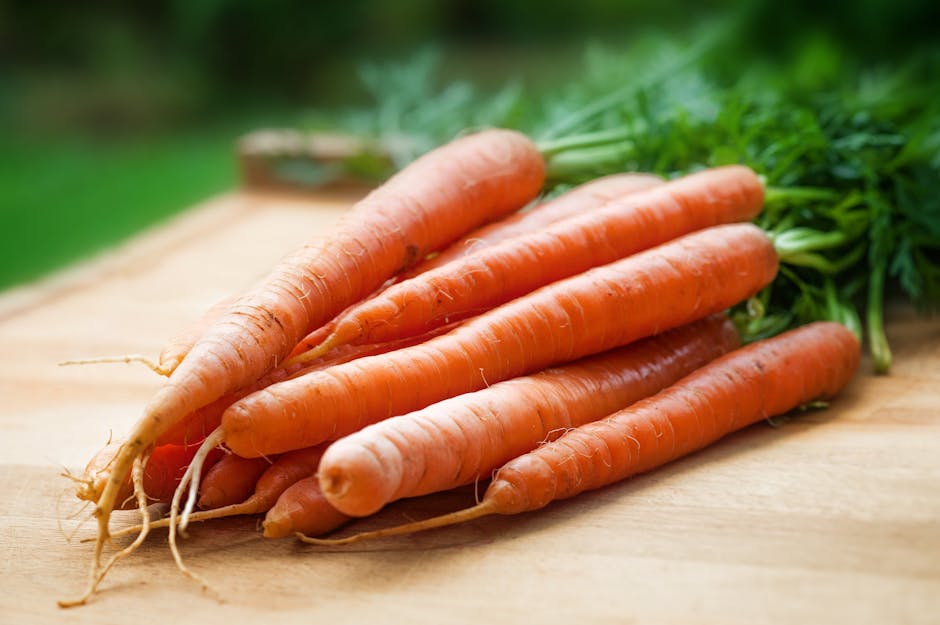The Ultimate Guide to Cucumbers: Benefits and Drawbacks
Uncovering the Surprising Truth About Cucumbers!
Cucumbers are an incredibly popular vegetable, often found in salads, sandwiches, and various dishes around the world. Not only are they refreshing and hydrating, but they also bring a host of nutritional benefits to the table. These green delights, which belong to the gourd family, are low in calories and high in water content, making them a go-to choice for health enthusiasts. However, like any food, cucumbers come with both advantages and disadvantages that you should consider before making them a staple in your diet. In this article, we’ll explore the advantages and disadvantages of cucumbers, helping you make informed choices about incorporating them into your meals.
While cucumbers are often overlooked in favor of more 'superfood' vegetables, their unique properties and health benefits deserve appreciation. They can be enjoyed in various forms, from fresh slices to pickles, and can easily be included in numerous recipes. However, certain individuals may experience issues stemming from cucumber consumption, including potential digestive problems. So, before you embrace this versatile vegetable, let’s dive deeper into the pros and cons of cucumbers to equip you with all the knowledge you need.
Pros
Cucumbers come packed with a wide range of health benefits that can significantly contribute to a balanced diet. Scoring high in water content, cucumbers can provide excellent hydration, making them ideal for summer snacks or meals. Beyond hydration, cucumbers are low in calories, making them a perfect choice for those looking to manage their weight while still enjoying delicious flavors. Furthermore, the vitamins and minerals in cucumbers, such as vitamin K, potassium, and antioxidants, can offer added health advantages. Now, let’s explore some of the specific benefits of cucumbers that can enhance your well-being.
Hydration Hero: Stay Refreshed with Cucumbers!
One of the standout advantages of cucumbers is their high water content, which can help keep you hydrated, especially during hot weather. With about 95% water, consuming cucumbers can contribute to your daily hydration needs while adding a satisfying crunch to your meals or snacks. Proper hydration is crucial for numerous bodily functions, including circulation, digestion, and temperature regulation, making cucumbers a smart choice, particularly in summer.
Low-Calorie Delight: Perfect for Weight Management!
Cucumbers are remarkably low in calories, with just 16 calories per 100 grams. This makes them an excellent option for anyone looking to lose weight or maintain a healthy weight. You can enjoy large servings guilt-free, which can help curb cravings for higher-calorie snacks. Incorporating cucumbers into dishes or as a side can help you feel full without significantly increasing caloric intake.
Nutrient-Rich: Get a Healthy Dose of Vitamins!
Cucumbers are not just water; they also come packed with essential nutrients that can benefit your health. They are a good source of vitamin K, which plays a vital role in bone health and blood clotting. In addition, cucumbers contain several antioxidants, which help combat oxidative stress and promote overall wellness. Including cucumbers in your diet can foster better health while making your meals more enjoyable.
Skin Soother: Natural Benefits for Your Skin!
Cucumbers have long been touted for their skincare benefits. Rich in vitamins and antioxidants, they can hydrate and nourish the skin, making them a popular ingredient in beauty products. Additionally, applying cucumber slices can help soothe skin irritations or reduce swelling. Eating them as part of your diet can also promote clearer skin, thanks to their high water content and vitamins.
Antioxidant Powerhouse: Fight Free Radicals!
Cucumbers are not just hydrating; they also contain antioxidants like flavonoids and tannins. These compounds help neutralize free radicals in the body, potentially reducing oxidative stress and lowering the risk of chronic diseases such as heart disease and cancer. Incorporating cucumbers into your diet can contribute to better overall health by enhancing your body's defense against harmful oxidative damage.
Digestive Aid: Promote Healthy Digestion!
Rich in water and fiber, cucumbers can be beneficial for maintaining a healthy digestive system. The high water content helps to keep stool soft and promotes regular bowel movements, which can help prevent constipation. Additionally, the fiber found in cucumbers aids in the absorption of nutrients, making them a valuable addition to meals focused on gut health.
Versatile Ingredient: Culinary Creativity Unleashed!
Cucumbers offer remarkable versatility in the kitchen. They can be eaten raw, pickled, or added to salads, sandwiches, and smoothies. Their mild flavor complements a wide range of dishes, allowing for culinary creativity. Cooked or raw, they bring a refreshing crunch and can elevate both simple and gourmet meals, making them a staple in various culinary traditions.
Missing a pro?
Let us know which pro you are missing!
Cons
Cucumbers, while beneficial, are not without their drawbacks. Some individuals may encounter adverse effects due to certain compounds, which can affect digestion and provoke allergies. Additionally, excessive consumption could lead to digestive discomfort and unwanted bloating. It's essential to be aware of potential downsides when considering cucumbers as a staple food. Let’s delve into some of the more notable disadvantages of cucumbers.
Digestion Dilemma: Beware of Bloating!
One potential downside of consuming cucumbers is the potential for digestive discomfort. Cucumbers contain a compound called cucurbitacin, which may lead to bloating or upset stomach in some individuals. Those with sensitive digestive systems could experience gas or abdominal pain after eating cucumbers, especially if consumed in large quantities. If you frequently face digestive issues, it may be wise to monitor your cucumber intake.
Allergic Reactions: A Caution for Some!
Although rare, some individuals may have allergic reactions to cucumbers. Symptoms can range from mild itching and swelling to more severe reactions. If you notice any adverse effects after consuming cucumbers, it’s essential to consult with a healthcare professional. For those with known allergies to other members of the gourd family, such as melons or squash, it’s particularly advisable to proceed with caution when trying cucumbers.
Pesticide Residue: The Importance of Proper Washing!
Cucumbers can often carry pesticide residues, which may pose health risks if ingested in substantial amounts. To mitigate the risks, it is crucial to wash cucumbers thoroughly before consumption. Opting for organic cucumbers can provide additional safety, as they are less likely to have harmful pesticide residues. Failing to wash cucumbers properly could lead to exposure to harmful chemicals, which can affect your health in the long run.
Eating in Moderation: Too Much of a Good Thing!
While cucumbers are healthy, moderating your intake is vital. Overeating cucumbers can lead to excessive water intake and an imbalance in electrolyte levels. This can further result in symptoms like dehydration, frequent urination, or gastrointestinal disturbances. It's crucial to enjoy cucumbers as part of a balanced diet, rather than overindulging, to reap their benefits safely without causing harm.
Potential Nutrient Loss: Cooking Effects!
While cucumbers are often enjoyed raw, cooking them can lead to nutrient loss, especially in vitamins like vitamin C and certain antioxidants. Cooking methods such as boiling can diminish their beneficial compounds, which may reduce the overall health benefits. For maximum nutritional value, it is advisable to consume cucumbers in their raw form or use gentle cooking methods that preserve their nutrients.
Gastrointestinal Sensitivity: A Caution for Some!
For individuals with sensitive stomachs, consuming cucumbers may pose gastrointestinal discomfort. Some people may experience gas, cramping, or diarrhea due to the high water and fiber content. The skin of the cucumber can also be difficult for some to digest. As such, it's important for those with digestive issues to monitor their intake and consider peeling cucumbers to minimize any adverse reactions.
Environmental Impact: Concerns with Production!
The commercial production of cucumbers can have an environmental impact, particularly when grown in non-sustainable ways. The use of non-organic pesticides and fertilizers can contribute to soil degradation and water pollution. Additionally, the carbon footprint from transporting cucumbers across long distances can also be a concern. Consumers who prioritize sustainability may want to seek locally grown or organic options to reduce their impact.
Missing a con?
Let us know which con you are missing!
Conclusion
In conclusion, cucumbers are a refreshing and versatile addition to your diet that can offer numerous health benefits, from hydration to nutrient richness. However, it is important to acknowledge the potential disadvantages, such as digestive discomfort or allergic reactions, when consuming them. By being aware of both the advantages and disadvantages of cucumbers, you can make informed decisions about how they fit into your meals and snacking routines. As with any food, moderation is key. Embrace cucumbers as part of a balanced diet for a healthy lifestyle.
What do you think?
Do you think the pros outweigh the cons?










